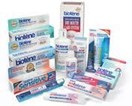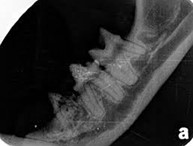Dental Differences for Down’s
Was graciously asked to speak to parents of Down’s Syndrome children at a Gigi’s Playhouse Chicago location last week. Interestingly, the parents all had completely different Down’s Syndrome children, ranging from a 5 year old boy needing a feeding tube because his gag reflex is so severe he can’t chew or swallow at all, even after removing his adenoids and tonsils, to a “snarky” (said with love from her mom) 9 year old who is competing with her younger sister on how many teeth each has lost. Had to share what we discussed. Fortunately, all had something to learn, and something to share….
We talked quite extensively about dry mouth, cracked lips and halitosis (bad breath). That was the one thing all had in common. Biotene was new to all three caregivers (2 moms, one caregiver), so we discussed this OTC mouthwash and gel (lip balm) a lot. Found in Walgreens, etc. Two kinds: “regular” and a green one that is a PDF, “Plaque Dissolving Formula.” I use that one. Alcohol, sulfate, sulfite free. PH neutral and a gentle taste.

We also heavily discussed braces; I recommended seeing an orthodontist later rather than sooner. This was a new concept to them since they didn’t know about how most teeth form in Downs Syndrome children: the teeth are usually smaller, and the roots are conical. So, instead of molars having two (lower) or three (upper) roots, they only have one, not providing a whole lot of support for chewing, let alone braces.
 X-ray of adult back teeth showing conical teeth
X-ray of adult back teeth showing conical teeth
X-ray of young adult front teeth with severe bone loss
Another concept we discussed was when teeth fall out. For those children with brothers/sisters, the need for their teeth to fall out when when their brothers and sisters do is extremely important, BUT it was stressed that, until the comfort level is there with the dentist and staff to have a PAN x-ray that goes around the head to see the entire mouth, one can’t really tell what baby teeth will be replaced with adult teeth. So, it is so important to keep baby teeth around for as long as possible. It also may be necessary for three instead of the usual two dental cleanings a year for proper oral health and education.
That’s where diet comes in. Baby teeth have 1/3 the enamel of adult teeth (for everyone), so sugars and sodas and acids (lemonade, anything carbonated), work that much quicker on baby teeth than adult teeth, causing decay/cavities. Studies have shown that gumchewers, especially after a meal, are less likely to have cavities than non-gumchewers. This is especially important for downs children and adults because they are not always the best chewers for food, so food tends to stay in and around their teeth longer. I know gag reflexes are HUGE for Downs patients, but, if they can, gumchewing is fantastic because it keeps the saliva flowing. Saliva is key in breaking down food stuffs in order to make them swallowable, so they will swallow more and easier.
To sum up, good dental habits are important for all, so starting with brushing teeth twice daily and attempting to floss between the teeth as young as possible will help prevent cavities and preserve the gums (and, the bone underneath). It is important for parents of multiple children that their Down’s child will not have baby tooth eruption and loss at the same time as their other children. And that is OKAY. Diet is just as important as consistent dental hygiene, so refraining children from sugars and processed carbs will help prevent cavities and bad breath as well. Start early and be constant so dental appointments can be fun and only twice a year like everyone else.

 X-ray of adult back teeth showing conical teeth
X-ray of adult back teeth showing conical teeth


